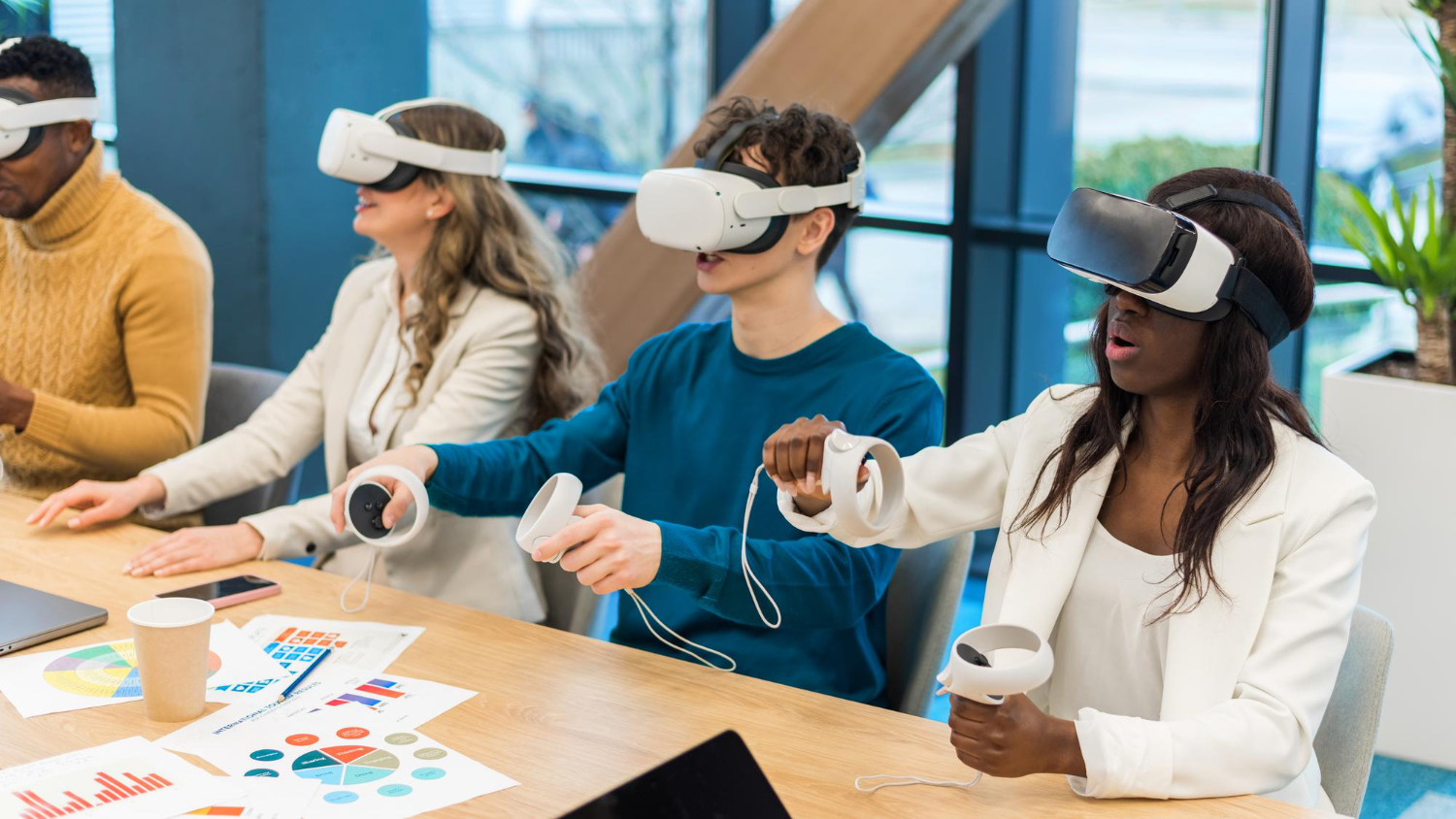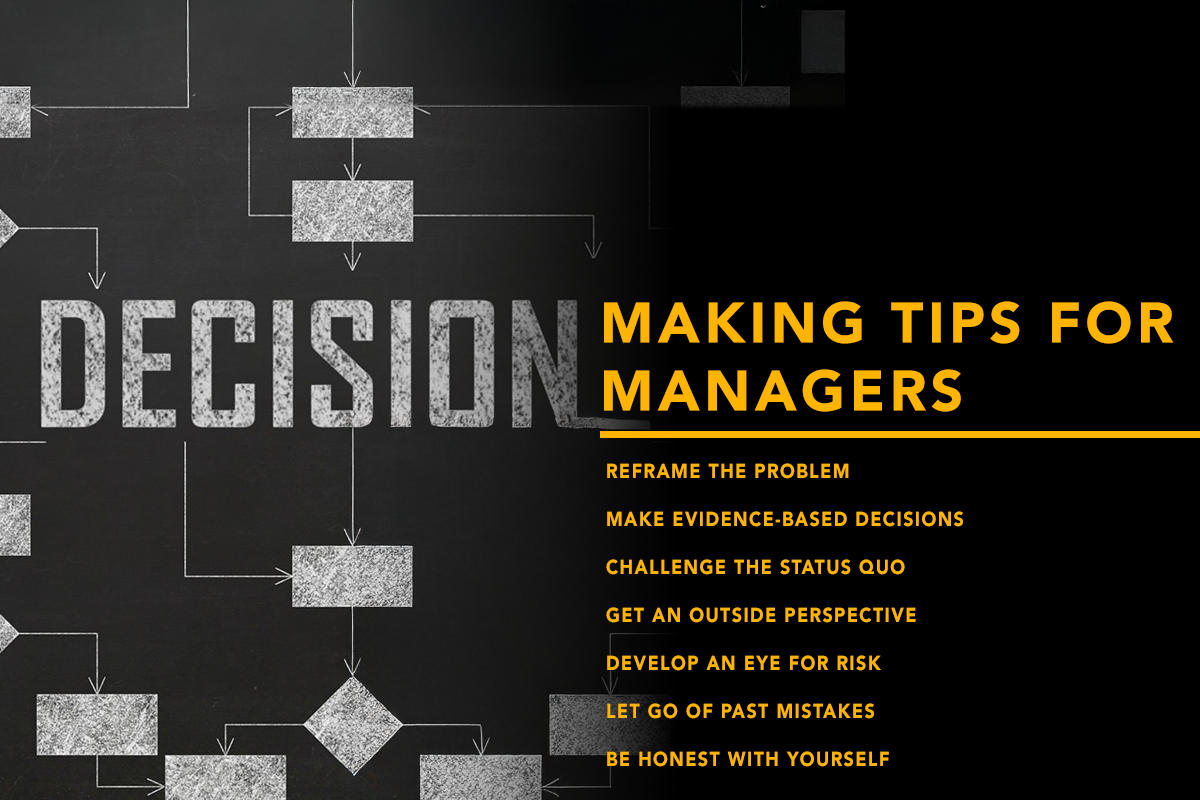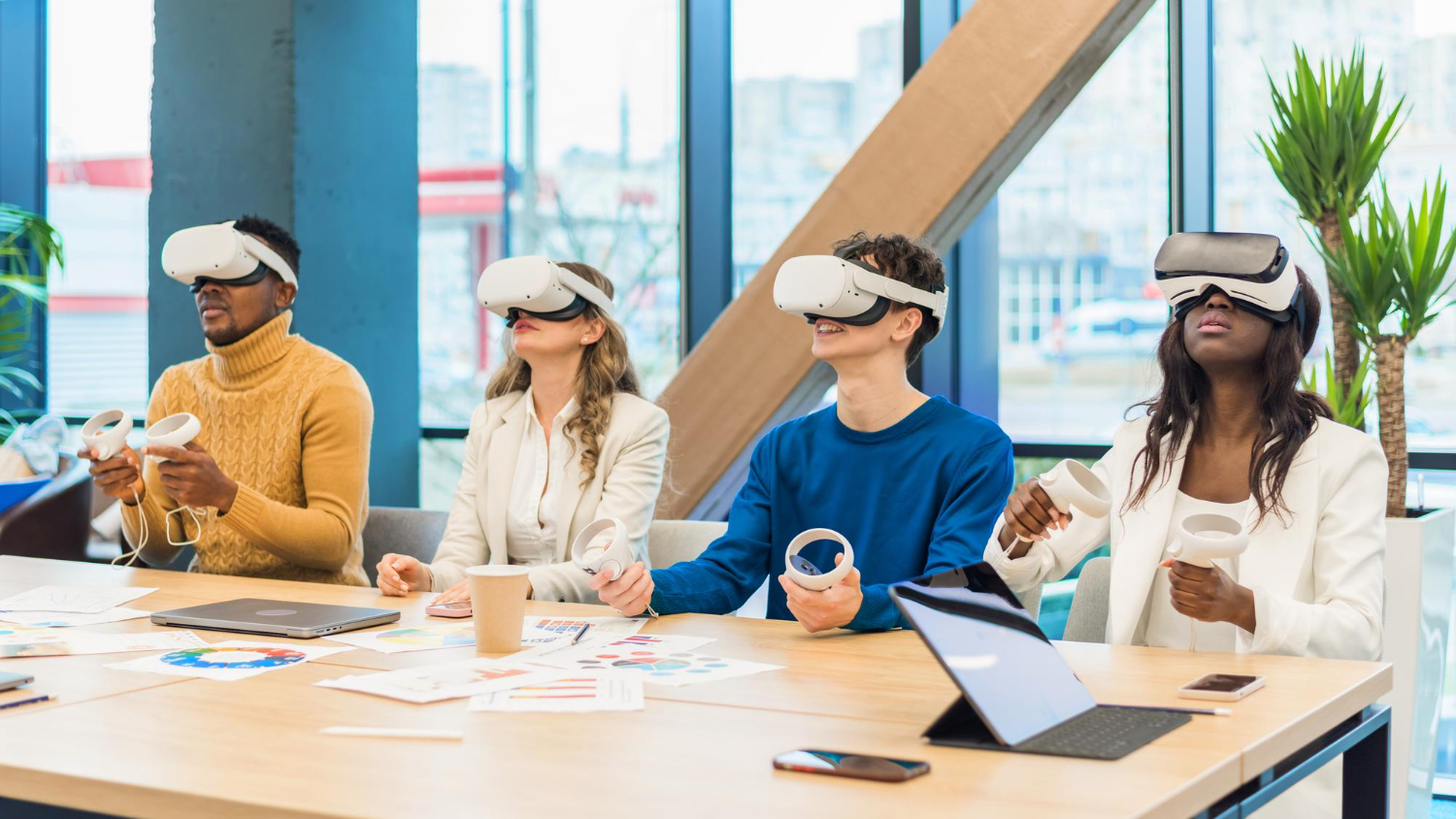Do you have a job? Then you likely see technology transforming your workplace daily. Maybe your work has an AI chatbot to deal with common customer questions. Or your company’s invoicing has been automated. Or your factory is using 8.35% less energy each month thanks to IoT-related upgrades.
Technology – that broad, generic term – is driving most business innovations today and tomorrow. Here, we introduce nine technologies impacting a broad spectrum of businesses around the world, including retail, real estate, manufacturing, medicine, and media.
They are:
- 5G
- Virtual and Augmented Reality (VR/AR)
- Robotic Process Automation (RPA)
- Blockchain
- Internet of Things (IoT)
- Artificial Intelligence (AI)
- Big Data Analytics
- Cloud Computing
- Quantum Computing
Some are widespread and interconnected; 5G, for instance, allows for the deployment of IoT and AI at scale. Others, like blockchain, hold great promise, but have yet to be widely accepted. But we can expect them all to become engines driving the world’s economies for the next few decades.
5G Technology
This upgrade in wireless technology from 4GLTE has allowed for the faster and more reliable interconnection of Internet-enabled devices. The result has been faster download speeds and improved data transfer which, in turn, has led to businesses being able to provide services in less time and to increase their productivity. 5G also made working from home that much easier, which came in handy when COVID-19 throttled the global economy. Expect 5G to play a crucial role in the development of so-called “smart” cities and self-driving vehicles… at least until 6G rolls around in 2030.
Virtual and Augmented Reality (VR/AR)
It’s ridiculed on TV comedies like Bob’s Burgers, but virtual reality (VR) has become seriously useful. Tourism companies use VR headsets to let potential tourists view a destination prior to booking. Similarly, real estate agencies started using 3D VR glasses during the pandemic to allow homeowners to view a property in the design stage; in this way, changes can be made prior to striking ground.
AR (augmented reality) refers to information that is digitally overlaid over the existing world via AR headsets or apps. IKEA customers, for instance, use it to see what their furniture will look like in their home prior to purchase. It has also been used by surgeons to see helpful information about their patient and the procedure they are performing.
Robotic Process Automation (RPA)
The Jetsons promised a future where we would work two days a week. While that has yet to pass, Robotic Process Automation (RPA) has taken some repetitive tasks out of the hands of humans. RPA refers to software robots using rule-based processes to do things like perform data entry, process invoices, and automate chatbot technology. The theoretical result is leaving (human) employees free to focus on higher-value work.
Blockchain
Will blockchain actually transform the way transactions get done? Its many supporters are certain it will, despite the many controversies attached to its primary proponent: cryptocurrency. Still, the potential of blockchain – which, at its heart, is a decentralized digital ledger that securely records transactions – is immense. Because data on it cannot be changed, it could eliminate many forms of fraud. In any case, established companies like IBM are using blockchain solutions in a number of ventures, including food distribution and shipping. It is also being used by telecoms, transport, and logistics firms; retailers; healthcare providers; and media companies.
Internet of Things (IoT)
Yes, it’s an odd phrase, but the Internet of Things (IoT) is being leveraged by industries like healthcare, energy, and manufacturing to drive innovation, enhance customer experience, and optimize operations. IoT basically refers to Internet-connected devices and sensors that can exchange information with each other. This concept is helping businesses prepare for automation by facilitating communication between devices. In IoT, the health of machines can be tracked by these sensors. This leads to less equipment downtime and significant energy savings, which facilitates sustainability on an industrial scale.
Artificial Intelligence (AI)
Whether or not you think it’s dangerous, artificial intelligence (AI) is changing much of the business sector at a rapid pace. AI analyzes existing data to simulate human behaviours and responses. And while many customers disdain AI chatbots, many have no qualms about using the ProfilePic app to generate a Facebook avatar or ChatGPT to write a homework assignment. The latter has already revolutionized digital marketing since its release in late 2022, with many companies using ChatGPT to create content like website blogs. Cheerleaders of the technology see it as a supporting tool that lets businesses further automate tasks and make data-driven decisions based on the fast processing of huge swaths of data.
Big Data Analytics
Just to clarify, when we talk about “big” data, we’re not just talking about terabytes but zettabytes. (One zettabyte is equivalent to 270 bytes!) The development of this tech lets businesses glean new insights from analyzing these huge tracts of both structured and unstructured data. (Sources of data include sensors, IoT devices, video, logs, transactional applications, and social media.) The results include identifying trends and uncovering hidden patterns that can drive innovation and improve operational efficiencies. For instance, HR departments can employ these analytics to find the best candidate for a job and retain employers longer.
Cloud Computing
Perhaps not surprisingly, effective Big Data Analytics is reliant upon cloud computing, as it provides the delivery speed, IT efficiency, and scalability it requires. Cloud computing refers to storing, processing, and accessing data stored online via third-party servers, rather than doing so on a company’s own proprietary servers. This allows businesses to more efficiently scale their processing power and save money as a result. Cloud computing also allows employees and collaborators around the world to access data or applications on any device with an internet connection from anywhere to work together seamlessly.
Quantum Computing
Looking further into the future, quantum computing does not exist yet in any way that is profitable to business. But when this cutting-edge technology does become commercially available, expect to see it revolutionize business and everyday life in ways we have not even considered yet.
Quantum computing essentially refers to taking two-dimensional (or “classical”) computing and ramping it up into new dimensions. The results of this exponentially increased computing power could include the development of new commercial products, enhanced security protocols and, on a more important scale, new drugs and sources of energy.
Adopting new technology into your business’s everyday operations is not always easy. But the tech outlined here is driving innovation, optimizing operations, upgrading the consumer experience, and creating new opportunities. Mastering these digital tools also means staying competitive in a business world where every advantage counts.
Sean Plummer | Contributing Writer



















